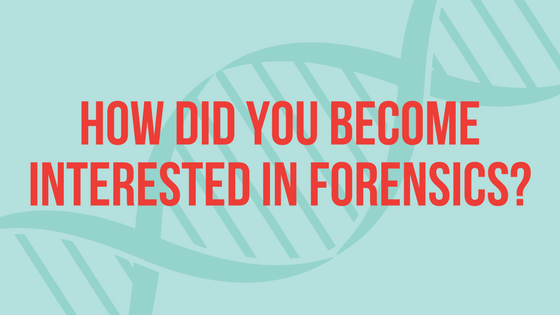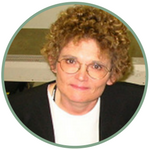Was it by chance, or did you always have an interest in science? We asked ISHI 28 speakers to share how they became interested in forensic science, and we’d love to hear your stories too! Join the conversation on our Facebook, LinkedIn, and Twitter pages!
“It was by chance – saw an ad in the back of Science for a job.”
 Chantal Frégeau, Royal Canadian Mounted Police
Chantal Frégeau, Royal Canadian Mounted Police
“Pure chance! I received permission to attend an autopsy when I was a teenager (a friend of mine was assisting the coroner in a hospital) but my dad thought I would not survive the experience as I was only 16 years old so I missed my chance. Then I had the opportunity to visit the Centre of Forensic Sciences in Toronto in 1986 as part of an organized tour during an international scientific conference I attended and I was fascinated by the case studies showcased in the hallway. Midway through my Ph.D. at the University of Alberta in 1988, I was approached by the RCMP to join the Molecular Genetics Group in Ottawa for developing strategies for DNA typing analysis for human identification. I joined in 1991 and the rest is history!”
 Scott Kennedy, University of Washington
Scott Kennedy, University of Washington
“I literally got a phone call from the Department of Defense and ended up giving a talk to the Defense Forensic Science Center. Prior to that, I just assumed what I was working on would only be a niche application in forensics.”
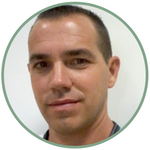 Sylvain Hubac, Forensic Science Laboratory of the French Gendarmerie (IRCGN)
Sylvain Hubac, Forensic Science Laboratory of the French Gendarmerie (IRCGN)
“It’s like the magic potion for Obelix the Gaul (French comic’s hero): “I fell in when I was a kid” (Je suis tombé dedans quand j’étais petit)”
 Cristina Rentas, DNA Labs International
Cristina Rentas, DNA Labs International
“I have been interested in forensics and crime solving since I was very young. I remember as a kid, I would read every Nancy Drew or Agatha Christie book I could get my hands on or spend hours in front of the TV watching Law and Order SVU. I loved mysteries so much that part of me thought I might end up becoming a detective. Coming from a family of scientists though, I should have known that my future would always be in science, so I combined my love of science and mysteries and went into the forensics field.”
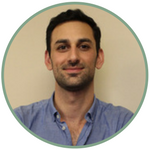 Mike Yakoo, Program in Biomedical Forensic Sciences, Boston University School of Medicine
Mike Yakoo, Program in Biomedical Forensic Sciences, Boston University School of Medicine
“Forensic Files—I know, so cliché!”
 Mandy Fashano, Columbus Police Forensic Services Center
Mandy Fashano, Columbus Police Forensic Services Center
“As a teenager I was always interested in biology and medicine and had the grand plan of going to medical school after college, but once I got to college (pre-med/microbiology major) I realized it just wasn’t for me. I had always had an interest in the forensic side (wanted to go to medical school for forensic pathology), especially with shows like CSI just becoming popular so I changed my major to forensic biology and haven’t turned back since.”
Colleen Fitzpatrick, Identifinders International
“Because of my hard science background – PhD in nuclear physics – I have always applied scientific methods to my genealogical research. As I realized that scientific-genealogical methods could enhance forensic identification, I began to develop the new field of forensic genealogy. Since then, I have been called on for high level projects such as identification of The Titanic Baby, the Abraham Lincoln DNA project and the exposure of several international bestselling literary frauds. This has led to my broader involvement with military identifications, missing-identity child survivors of the Holocaust, and cold case work for law enforcement agencies throughout the country. I excel at international work – I have researched in 50 countries.”
James Landers, University of Virginia, Department of Chemistry
“Post-9/11, we shifted some of the focus of my research group from clinical projects to those more forensic in nature. Funding from the FBI seeded our effort in microfluidic DNA extraction, PCR and STR separation. It was from this effort that we were able to contribute to the Rapid DNA field and other avenues of forensic research and, more specifically, develop a research team focused on faSTR DNA analysis – STR profiling hat is ‘faster’ than ‘rapid’.”
 Rachel Oefelein, DNA Labs International
Rachel Oefelein, DNA Labs International
“Really since a kid I have been into science and mystery but I took a basic introductory forensics course at Loyola University in New Orleans and fell in love. I haven’t looked back since!”
Jody Hynds, Orange County District Attorney’s Office
“I took a forensic anthropology course and found it fascinating. I fell into a forensic DNA internship in undergrad and never looked back.”
“I first became interested in DNA profiling in freshman biology during my undergraduate studies when we extracted DNA from our own hair and visualized our specific band patterns on agarose gels. From that lab I fell in love with molecular biology. I remember gaining an interest in microbial forensics after the 2001 anthrax attacks, and I wanted to learn more about the human forensics and microbial forensics fields. So after many Google searches and graduate school applications, I found myself getting my master’s degree in Forensic Biology at UAlbany. I currently do research in both human and microbial forensics and love it!”
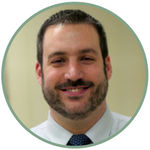 Michael Marciano, Forensic and National Security Services Institute, Syracuse University
Michael Marciano, Forensic and National Security Services Institute, Syracuse University
“About twenty years ago, as a senior in high school, I approached the local DNA technical leader, Kathy Corrado, and I asked her what it takes to be a forensic DNA analyst. I followed her advice; six years later she was the lab director who first hired me.”
Jonathan Adelman, Forensic and National Security Services Institute, Syracuse University
“My interest in forensics began in 2013 at the genesis of this project, though it has since expanded well beyond the boundaries of DNA mixture interpretation.”
WOULD YOU LIKE TO SEE MORE ARTICLES LIKE THIS? SUBSCRIBE TO THE ISHI BLOG BELOW!

